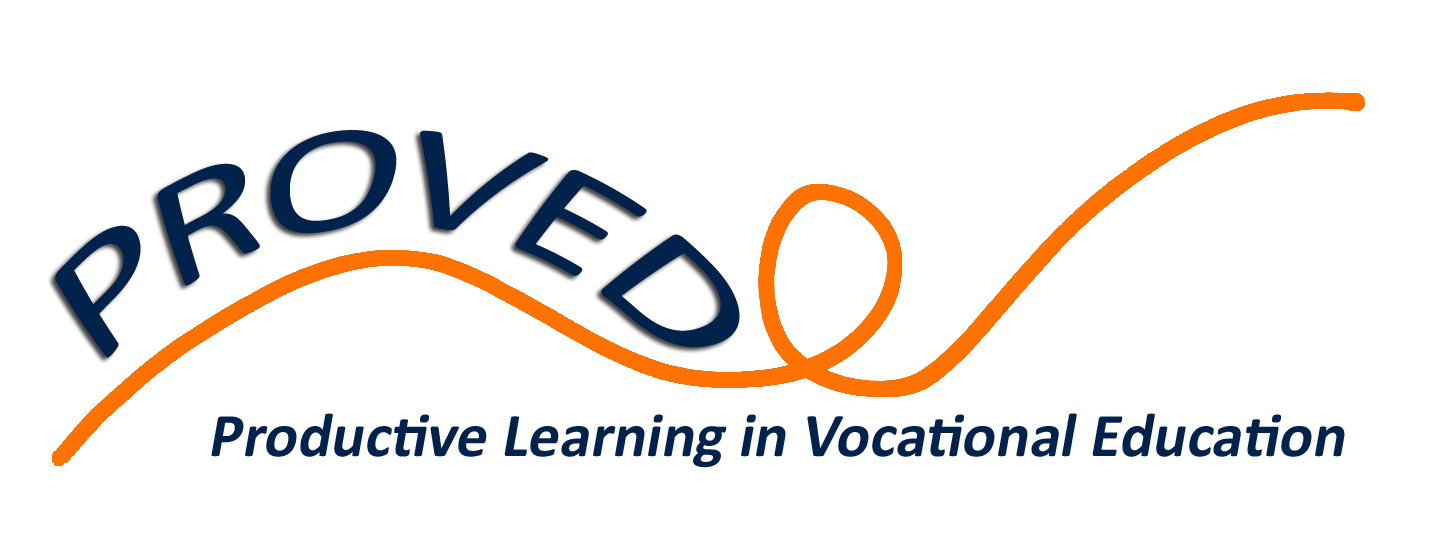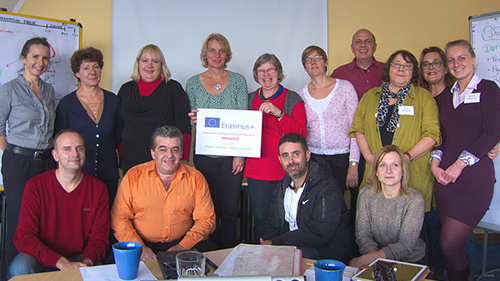 
PROVED (“Productive Learning in Vocational Education”) - Project summary
PROVED (“Productive Learning in Vocational Education”) is a two years project which will be performed in Finland, Germany, Greece and Lithuania. The duration of the project is from 1st September 2014 until 31st of August 2016.
The main aim is to contribute to a higher employment rate of youth and young adults, to reduce the rate of drop-outs of the vocational education system and in that way to fight poverty and social exclusion of young disadvantaged people. By improving the VET systems in the participating countries disadvantaged young people should get a better support in their transition to the labour market.
The project aim is the transfer of the principles of a successful educational approach („Productive Learning“ - PL) from the field of general education to the field of vocational education. In Germany 84 secondary schools offer PL, more than 10. 000 students who were at risk of drop out of the school system participated yet, the majority left with a school certificate and with a clear vocational perspective. During the last years PL was also implemented in secondary schools in Finland and Lithuania.

The main characteristics of PL are:
- Learning in real life situations
- Connecting theory and practice
- Individualisation of the learning process
- Connecting general education and vocational orientation
The consortium consists of eight partner institutions coming from Finland, Germany, Greece and Lithuania. The institutions work in the field of general, vocational or non-formal education and they are experienced in project and curriculum development, teacher training, teaching in secondary schools and at VET. The main benefit for the institutions involved will be an expanded pedagogical profile or expertise in the field of vocational education and a deeper cooperation at regional (e.g. with enterprises, job center), national (e.g. with ministries, networks working in VET) and international level (e.g. between the participating countries, in the frame of INEPS).
The experiences of the successful VET systems in Finland and Germany and the innovative ideas of PL will be the basis to develop an attractive pedagogical program for young disadvantaged people between 16 and 24, offering more practical learning and more connection between practice and theory in the frame of vocational orientation and education. With regard to the needs and demands of the VET systems in the countries involved, four implementation plans will be designed in the first project year. On this basis each vocational education institution involved will develop, test and implement its own adapted PL concept. At least 50 disadvantaged youth and young adults will participate in the second year. Expected impacts for the youth and young adults are more clarity concerning individual skills and interests, a better idea of the demands of the world of work, developed skills in particular needed in the world of work, better vocational perspectives and more economic independency. At the same time the local economy benefits from better educated young people and from the possibility to “test” the young people in practice.
An individualized and practice related pedagogical approach requires also new methods of teaching. Therefore the concept development and the implementation process will be connected with the qualification of the TEACHING staff of the participating vocational education institutions. At least 12 teachers will participate in a training program for teachers at VET, including seminars, school based trainings and study letters. It is foreseen to open parts of the training program to interested vocational schools in the region. The main expected impacts for the teachers involved are more knowledge about the VET systems in Finland, Germany, Greece and Lithuania, improved methodical skills, more job satisfaction, better chances in the working field of VET and more international contacts and exchange.
Especially in Greece and Lithuania there is no tradition of learning in real life situations. Therefore it is necessary to prepare the enterprises for a co-operation by the development of specific information material (e.g. flyer for each country describing the concept and the conditions of a cooperation) and by the TRAINING OF MENTORS IN PRACTICE. At least 24 mentors in practice will participate in this training program focusing on questions concerning the concept, the methods, the tasks and the legal frame of “learning in practice”. The main expected impacts for the mentors are more knowledge about the concept, improved methodical skills in counseling young people in their learning process and a better understanding of the needs of disadvantaged young people.
In conclusion PROVED will contribute to a high quality in vocational education, to a better cooperation between school, VET and the world of work and to high qualified staff, in particular to the development of an European Qualification Framework (EQF) in that way PROVED will support young disadvantaged people in their transition to the world of work.
www.iple.de/PROVED
Contact: Heike Borkenhagen, heike.borkenhagen@iple.de
updated
2015-02-27
|